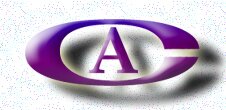Changeling Aspects
For Parents of Gender-Variant Young
For Parents of Gender-Variant Young
Links from Synopsis of Transsexualism
International Links from TranssexualRoadMap
GenderBridge -NZ A Great Site with a Vast Amount of Info.. See their "Resource" section.
Psychiatrists, Psychologists, Counsellors
Hair Removal & Facial Rejuvenation Etc
Queensland Police Service LGBTI Liaison
Australia's Internet Safety Advisory Body
Digital Media Literacy: Why It Matters Today
You’re surrounded by countless digital messages every day, but can you always tell what’s true and what’s not? With misinformation rising and AI tools shaping the content you see, it’s more important than ever to sharpen your digital media literacy. If you want to make smarter choices and confidently engage online, understanding these tools and tactics is essential. There’s more to explore about how you can protect yourself in this fast-changing landscape.
Understanding Digital Media Literacy
Digital media literacy provides individuals with the skills necessary to effectively navigate the online environment. It involves understanding how to responsibly access, utilize, and create electronic content.
In an age where students encounter an overwhelming amount of digital information, having robust critical thinking skills is crucial for distinguishing between credible facts and misleading information. The prevalence of misinformation, disinformation, and malinformation presents ongoing challenges that underscore the importance of media literacy education.
By familiarizing themselves with digital tools and the processes of content creation, individuals enhance their capacity to differentiate between reliable reporting and deceptive or artificially generated content. Given the role of artificial intelligence in shaping the information landscape, digital media literacy becomes an important means of validating information and fostering trust in reliable sources across various global platforms.
Essential Skills for the Modern Media Landscape
As the volume of online content increases and its complexity grows, acquiring essential media literacy skills is critical. The average individual encounters numerous advertisements and snippets of news every day, particularly through social media platforms, underscoring the need for digital literacy.
Key skills involve the capacity to critically assess information, differentiate between misinformation and disinformation, and recognize credible sources. Given that students often spend significant time online, it's imperative for them to learn how to question and verify the information they come across.
The Dangers of Misinformation and Disinformation
The prevalence of misinformation and disinformation online poses significant challenges for information consumers. In an age where digital content is rapidly shared, it becomes increasingly difficult to discern credible information from false narratives.
Research indicates that a substantial number of individuals, particularly younger generations, encounter misleading information regularly, which can lead to misguided beliefs and decisions rooted in incorrect facts.
Misinformation refers to false or misleading information shared without malicious intent, while disinformation is characterized by the deliberate intent to deceive. According to surveys, around 70% of Americans report encountering false information online, highlighting the urgent need for enhanced media literacy and digital discernment education.
Enhancing one’s ability to evaluate the credibility of sources and verify information is critical for maintaining informed public discourse and protecting democratic processes.
Strengthening these skills not only helps individuals make more informed choices but also contributes to fostering trust in factual reporting and credible institutions.
The Role of Artificial Intelligence in Digital Media
As artificial intelligence continues to shape the media landscape, it prompts important discussions about authenticity and trustworthiness. The generation of digital content by AI—from text to images and videos—necessitates a critical approach to information consumption.
This development complicates the ability to differentiate between genuine and manipulated content, underscoring the necessity for digital literacy skills.
Research indicates that many individuals, particularly students, often encounter challenges in discerning credible sources amidst the vast array of information available online. Consequently, an understanding of how artificial intelligence influences the content consumed is essential.
Educational programs have begun to incorporate strategies that teach individuals to assess source credibility and to use AI tools responsibly.
The Impact of Media on Culture and Society
Media is a pervasive element of contemporary life and plays a significant role in shaping perceptions of culture and society. In the current digital landscape, mass media serves as a primary means for the transmission of cultural norms and values. Various platforms, including social media, streaming services, and traditional media, contribute to the formation of public opinion and individual identity.
Students, who've unprecedented access to a wide range of media messages, should engage in critical analysis of this content. It's important to examine not only the information presented but also the context in which it's delivered.
Media literacy is essential for recognizing cultural shifts and identifying biases within media representations. By developing these skills, individuals can gain a deeper understanding of how media influences societal perceptions and continues to shape the world they navigate.
Building a Future-Proof Digital Media Education
As digital media continues to permeate everyday life, it's essential for educational systems to equip students with the skills necessary to critically evaluate the information they encounter online.
An effective digital media education should emphasize the development of skills for assessing various types of digital content, recognizing misinformation, and making informed decisions based on credible sources.
Educators play a critical role in teaching students about privacy concerns, digital safety measures, and the significant influence of artificial intelligence in both the creation and verification of media.
Media literacy involves not only the ability to consume digital content responsibly but also understanding the mechanisms behind content creation and dissemination.
This knowledge is increasingly important as society becomes more reliant on digital platforms for information.
By fostering these skills, educational institutions can ensure that students aren't only consumers of digital media but also informed participants in a media-rich environment.
Such preparation is vital for navigating a complex information landscape where digital literacy is increasingly important for personal and professional success.
Conclusion
You live in a world overflowing with information, and it’s up to you to make sense of it. By sharpening your digital media literacy skills, you can confidently spot misinformation, recognize AI-generated content, and support trustworthy sources. Don’t underestimate your role—you help shape a healthier, more informed society every time you engage with media responsibly. Embrace curiosity, keep learning, and you’ll be prepared for whatever digital challenges the future brings.








